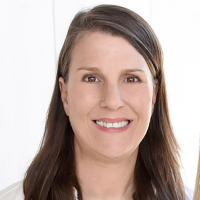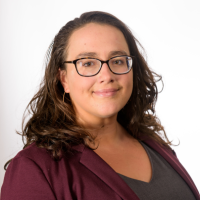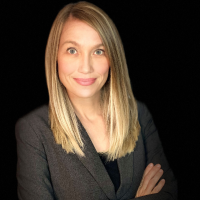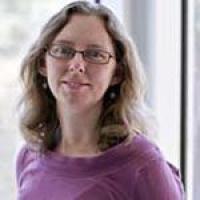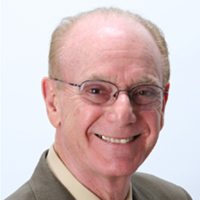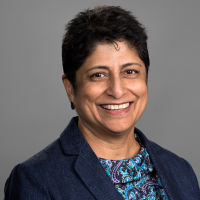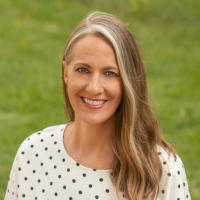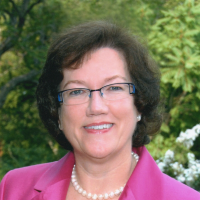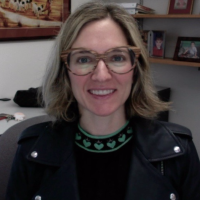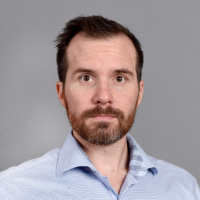
Global Impact Collaboratory
Team
Alexandra Brewis Slade, Co-Director GIC
Arizona State University
Alex is an anthropologist with three decades experience leading large mixed-method social science collaborative projects in low-resource communities across the globe, including in the island Pacific, Americas, Africa, and the Caribbean. Her personal research focuses on how social vulnerabilities and exclusions (like stigma, poverty, or gender) shape human well-being. She is an AAAS fellow who has authored 5 books and over 100 peer-reviewed papers applying this question to pressing problems such as depression, obesity, health care, food and water insecurity, and climate change. An accomplished research strategist, Alex has deep experience in working with key public/private partners to translate social science research into new forms of usable knowledge. In 2017, when she stepped aside as Associate Vice President for Social Sciences and Director of the School of Human Evolution and Social Change, ASU had risen to #4 nationally in social science research based on NSF HERD rankings, up from #13, and anthropology had emerged with multiple #1 rankings in the US and world for its’ research scope and impact. An award-winning instructor, Alex designed and launched the nation’s first and largest global health undergraduate degree. She received her doctorate in anthropology from the University of Arizona.
Peggy Ochandarena, Co-Director GIC
Chemonics International
Peggy is a trained researcher, lawyer, and social worker, with 20 years of international development experience in over 40 countries in the Middle East, Africa, Asia, Latin America, Europe, and Eurasia. She created Chemonics International’s Monitoring, Evaluation and Learning department, developing a certificate program and training hundreds of staff. She developed and delivered training for USAID and U.S. government personnel from the Departments of State, Justice, Defense, and Homeland Security on project design and performance measurement. She has extensive experience with overall responsibility for USAID and State Department project management and success, having served as director or chief of party for nearly two dozen projects. Peggy is currently the Chief of Party for USAID’s Enhanced Palestinian Justice Program in the West Bank. She formerly worked as a director for the international division of the National Center for State Courts, and as the deputy director of the World Justice Project. She received her master of social work from Boston College and law degree from Georgia State University College of Law.
Roseanne Schuster, Director of Monitoring, Evaluation, and Learning Practice and Innovation, GIC
Arizona State University
Roseanne is a global nutrition and public health specialist with 12 years of experience in the design, implementation, and evaluation of programs seeking to improve health and environmental and social wellbeing. She engages community-based, participatory, and implementation science approaches in interventions and evaluations to ensure programs are ultimately responsive to target populations and adaptive to the complex systems in which they operate. Roseanne’s research focuses on how to improve delivery of critical health services in low-resource settings, uptake of health care among vulnerable populations, and understanding of how food and water insecurity shape infant and young child feeding and growth. She has led interventions, evaluations, and indicator development activities in multiple countries, with extensive work in sub-Saharan Africa, sponsored by USAID, US State Department, DFID, and NIH. She received her doctorate in international nutrition from Cornell University.
Amber Wutich, Director, Center for Global Health
Arizona State University
Amber is trained in anthropology and development. Her two decades of community-based field work in Latin America (Bolivia, Paraguay, Mexico) and China are concerned with how people are affected by and cope with inequitable institutions, especially under conditions of poverty. She directs the Global Ethnohydrology Study, a multi-year multi-country study of the human dimensions of water. As a nationally-leading social science methodologist with more than 50 peer-reviewed articles, Amber edits the journal Field Methods and co-authored the book Analyzing Qualitative Data: Systematic Approaches (2016, SAGE). Amber teaches ethnographic field methods and text analysis in national programs such as the National Science Foundation’s programs in research methods in cultural anthropology. Her teaching has been recognized with awards such as ASU Faculty Mentor Award - Outstanding Doctoral Chair (2017), Carnegie CASE Arizona Professor of the Year Award (2014), and ASU's Faculty Achievement Award for Excellence in Classroom Performance (2011). Amber works with the Global Impact Collaboratory in her role as Director of the Center for Global Health, formulating and executing our signature projects with an institutional, health, or environmental focus. She received her doctorate in cultural anthropology from the University of Florida.
Marcia Nation, Owner and Principal, Nation Evaluation Consulting
Trained as a cultural geographer and social researcher, Marcia’s early community-based work focused on women and agriculture in rural Africa. This was followed by 15 years of experience working with organizations on program evaluation, strategic planning, and performance measurement. Marcia is an expert in adapting applied social science research to evaluation work, including survey design, focus group facilitation, interviewing and quantitative and qualitative data analysis. The GIC benefits from her vast experience in designing evaluations for complex collaborations, networks, and coalitions working toward common goals and collective impacts that involve complexity and adaptive management, and from her special position and perspective as a small business partner. She received her doctorate in geography from the University of Toronto.
H. Russell Bernard, Director and Professor, Institute for Social Science Research
Arizona State University
Russ is a cultural anthropologist with six decades of international field experience (on technology, social change, and language), known globally for his expertise in social science methodologies. Bernard's widely adopted books include Research Methods in Anthropology: Qualitative and Quantitative Approaches, Social Research Methods, Analyzing Qualitative Data: Systematic Approaches, and Native Ethnography. Bernard was the 2003 recipient of the Franz Boas Award from the American Anthropological Association and is a member of the National Academy of Sciences. Russ works with the Global Impact Collaboratory in his role as Director of ASU’s Institute for Social Science Research (the ISSR), providing cutting-edge social methods research training and support across and beyond the university. He received his doctorate in cultural anthropology from the University of Illinois.
Punam Ohri-Vachaspati, Professor, School of Nutrition and Health Promotion
Arizona State University
Across her career, Punam has been concerned with how to plan for and measure improvement in health and nutrition, with special consideration of the challenges of evaluation in low income, low literacy settings. For example, she co-wrote the USAID technical guides on measuring household food consumption indicators, and was a core member of the National Collaborative on Childhood Obesity Research team that created the Measures Registry, an online resource for researchers and practitioners. Punam also brings to the GIC an accomplished background in connecting academic research to policy. In 2017, she served as RWJF Health Policy Fellow working in Senator Gillibrand’s office in Washington DC, and she continues to lead the ASU Food Environment and Policy research group. Punam’s own research expertise is community- and school-based studies of food access, food consumption, physical activity, and other behavioral aspects of global health.
Daniel Hruschka, Associate Director, School of Human Evolution and Social Change
Arizona State University
Dan is an anthropologist and epidemiologist who studies culture and behavior change. For the last decade, Dan has been testing the relationship between what people believe and what people do in community-based projects in rural Bangladesh. Previously he directed long-term anthropological projects in Mongolia. To complement this work with a broader global perspective, he also analyzes large-scale datasets on the social determinants of health worldwide. His 60 peer reviewed articles and book showcase how innovative methods for how we can best collect and analyze data to demonstrate differences and change. Dan also is an award-winning teacher, and has conducted multiple national trainings for academics and industry in social research methods. Dan is Associate Director of School of Human Evolution and Social Change, which houses both the GIC and the US’s top research-ranked anthropology program. Dan works closely with the GIC on signature projects and training through his expertise in cultural consensus, social network, and other innovative methods, and as a liaison to the world’s largest and nation’s top ranked anthropology program. He received his doctorate in anthropology from Emory University.
Alissa Ruth, Director of Strategic Initiatives, School of Human Evolution and Social Change
Arizona State University
Alissa is an anthropologist who uses research and outreach to connect academic scholarship to what external public and private partners need. This has included large, impactful citizen science projects, massive online education programs, and study abroad. Her own research focuses on how to remove the structural inequalities faced by vulnerable youth (such as immigrants and minorities). Much of her prior international work has been in Mexico. She is currently leading a large project for the Cisco Fund, an advised fund of Silicon Valley Community Foundation, focused on encouraging social entrepreneurship and college success in youth. Alissa works closely with the GIC in designing impactful citizen science and other outreach activities, and through her expertise in the area of migration and education. She received her doctorate in anthropology from Arizona State University.
Anne Simmons-Benton, Executive Director, ASU-International Development
Arizona State University
Anne is an international development expert and attorney with more than 30 years of experience driving private sector development, promoting sustainable economic growth, and increasing employment in 32 countries. Anne brings the GIC an extensive knowledge of the challenges of development especially for women, having previously worked for the U.S. Agency for International Development (USAID) as Senior Trade Advisor and the U.S. Department of Commerce as Senior Counsel where she specialized in assisting Less Developed Countries (LDCs). Based near Dupont Circle and with long Washington, DC experience, Anne is uniquely positioned to identify emerging development challenges for the GIC to tackle, and support new partnerships to help do that. She received her law degree from Antioch School of Law.
Valerie Mueller, Assistant Professor, School of Politics and Global Studies
Arizona State University
Trained as an agricultural economist, Valerie was previously a Senior Research Fellow at the International Food Policy Research Institute (IFPRI) in Washington, D.C., Valerie has experience that spans Africa, South Asia, the Caribbean and the Americas. Much of her own scholarly work is focused on household economic challenges in underserved rural areas across the globe, from migration to heat stress to agricultural adoption. Skilled in science communication, Valerie brings to the GIC a wealth of expertise connecting academic scholarship to donor communities, local policymakers, and government officials. She received her doctorate in agricultural and resource economics from the University of Maryland, College Park.
Benjamin Trumble, Assistant Professor, School of Human Evolution and Social Change, Center for Evolution and Medicine
Arizona State University
Ben brings to the GIC expertise in field-based biomarker measurement in low-resource and remote settings. For project monitoring, Ben’s state-of-the-art lab is advancing innovations in highly reliable longitudinal measures of such aspects of community wellbeing as stress, immune function, pathogen loads and chronic disease risk.
Rimjhim Aggarwal, Associate Professor, School of Sustainability
Arizona State University
Trained in Economics at Cornell University, Rimjhim’s expertise is the human dimensions of sustainable development, with special focus on agricultural and water governance, farm livelihoods and food security. Her areal expertise is focused on Asia, including Nepal, India and Thailand. She previously served as senior consultant for the United Nations University's World Institute for Development Economics Research and the World Bank.
